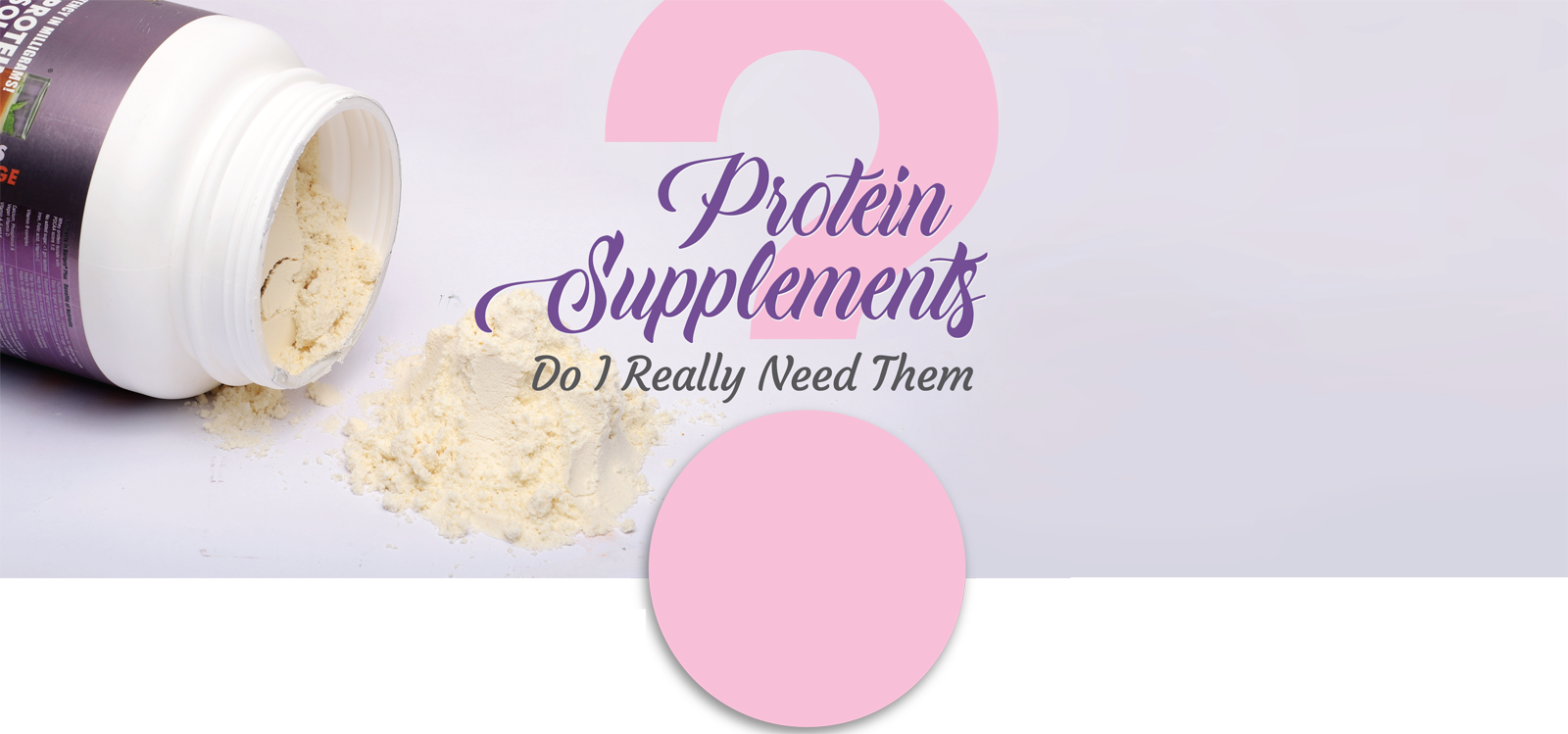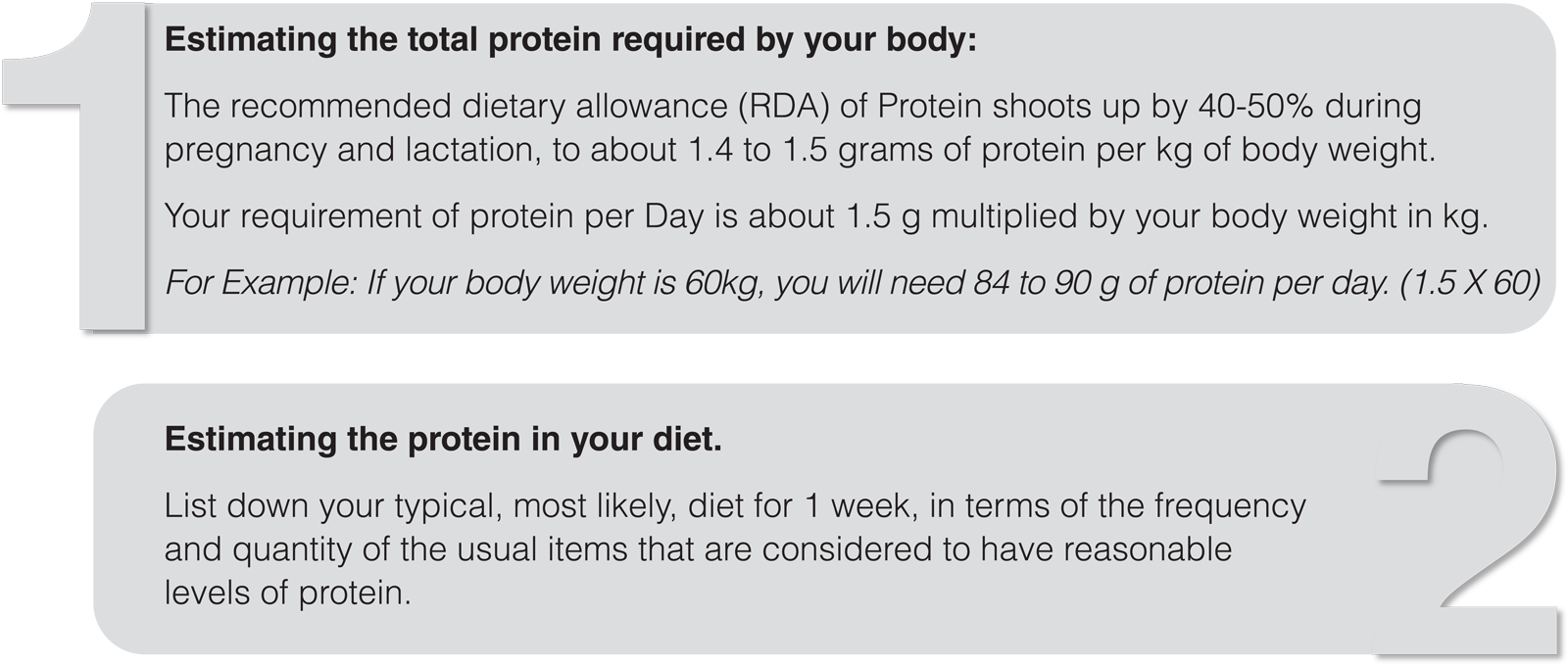
Pregnancy and lactation is one time when everyone starts eating healthy, the woman starts taking responsibility of what she eats, knowing that it has an important
bearing on long term health of the growing life inside her.
It is natural to want to avoid anything that is “processed”, made in factory, not made in own kitchen and so on.
So, if your diet can provide the required quantity and quality of protein per day, then it is undoubtedly the best option. Please read the blog titled “Understanding Protein” to learn more about types of protein.
It is important to know 2 things:

The implication of overestimating what your diet can provide, and not eating according to that planned diet, can lead to severe protein deficiency which can affect your own health, and the
development and growth of your baby.
Just like most new year resolutions, a diet too can be difficult to sustain despite the best of intentions, that too not for a few days or weeks, but for 6-7 months of pregnancy and then 6 -12 months of lactation as well.
Food cravings and aversions, may further make adhering to your regimented diet a challenge.
We recommend to not rely only on memory regarding what you ate (our brains are very good at fooling ourselves). Instead, start by maintaining a diary of what you eat for 1st 2-3 weeks, until you have settled onto a diet which you feel you can sustain, and then estimate the protein in that diet using our calculator. Alternatively, you can use one of many available apps.
Also, remember that pregnancy is not an illness, it is a period to enjoy and celebrate. You don’t want to become a paranoid protein-counter.
So make a realistic diet plan that leaves room for deviation, and for enjoyment and indulgences like ice cream.
How much protein do you need from supplements?
The gap between “The protein your body needs” and “The protein your diet provides” is what you need to supplement.
Incorporating a good protein supplement, can give you the peace of mind that your baby will get the adequate proteins, even if your diet cannot fully provide all of it.
A good supplement is one which has:

© 2020 CHPL I All right reserved
© 2020 CHPL I All right reserved